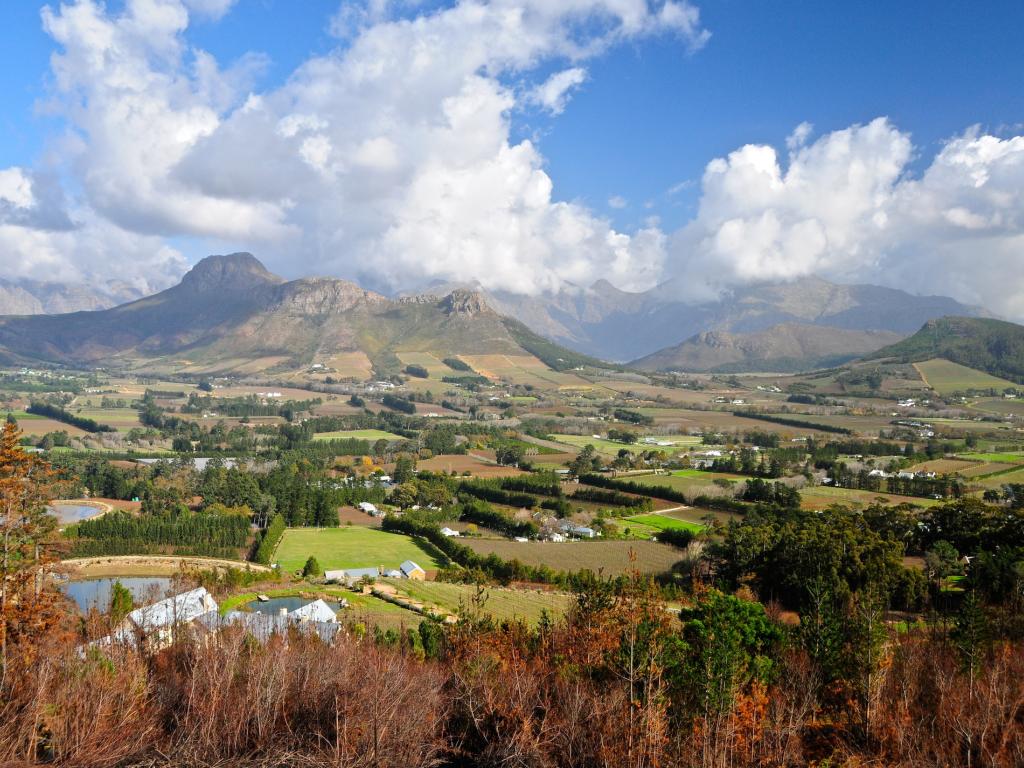Using Natural Capital Accounting is vital for South Africa's future

Photo: Richard Cavalleri
This work emanates from a project by the Agence Française de Développement (AFD) with help from the South African National Biodiversity Institute (SANBI), and the Department of Forestry, Fisheries and the Environment (DFFE) on a Natural Capital Accounting (NCA) in 2022-2023. The aim was to determine the socioeconomic and financial risks with the degradation of ecosystem services in South Africa.
Made the results easily accessible
In 2024, Professor Martine Visser, who leads the EfD collaborative program NatCap worked with Associate Professor Jane Turpie, (also Director of Anchor Environmental), and Justine Neke from Indlela Growth Strategies to create various knowledge products emanating from this work, as part of an Anchor Environmental project.
The knowledge products included a report targeting stakeholder audiences, policy and technical briefs, and workshops to make the results from the project accessible to policymakers and stakeholders in business, development finance, and natural resource sectors.
South Africa is particularly at risk
The research highlights the use of natural capital accounting (NCA) as a practical tool that focuses on connecting environmental resources to economic models, to provide a greater understanding of how the environment affects people, and how people’s actions impact the environment.
“South Africa, with its great biodiversity, is particularly at risk for the detrimental effects of climate change, which makes it extremely important to account for the value of the environment, especially when making policy decisions,” notes Martine Visser.
Technology changes can cause risks
The study focused on understanding the impact of nature-related risks (NRRs) on socio-economic indicators such as employment, wages, and household consumption. NRRs are classified as physical risks and transition risks, where the former represents the risks of ecosystem service degradation, such as water quality reduction or plant pollen count reduction. Transition risks are associated with a change in technology or consumer preferences in response to changes in regulation, such as restricting water use in a water-intensive industry.
To measure these risks, and their impact on the economy, the researchers used several data sources, such as WWF’s Water Risk Filter, Environ Satellite Accounts, Quantec Data, and Socio-Economic Satellite Accounts, among other datasets.
Agriculture is extra vulnerable
The key findings were that specific industries, such as mining and agriculture, were especially vulnerable to certain ecosystem services such as surface water, groundwater, water flow maintenance, and climate regulation. Agriculture is vulnerable to most ecosystem services. Degradation in specific ecosystem services or changes in technology to reduce environmental impact have effects on socio-economic indicators (wages, employment, household consumption, exports, production, profits, and taxes).
Surface water and groundwater are ecosystem services that affect all the socioeconomic indicators (a reduction in their quality or accessibility would create drastic consequences across the whole economy. Other factors, such as pest control have less impact on the economy, and thus a reduction in quality or technological shift to reduce its effect would have less impact on socio-economic indicators.
Workshops provided insights
Throughout the work with the summary, there were several workshops (primarily led by Anchor Environmental and the South African National Biodiversity Institute ), whereby stakeholder groups gave input and provided questions to the researchers. These stakeholders included among others the Department of Forestry, Fisheries and the Environment, the Agricultural Business Chamber, Sasol (a global chemicals and energy company), the Development Bank of Southern Africa, and the South African Reserve Bank.
“These workshops were extremely helpful in gaining insights from the different groups that see different benefits or challenges, especially in a policymaking context, says Martine Visser.
Can lead to real change
On the 7th and 8th of August, Martine Visser attended the third in-person National Natural Capital Accounting (NCA) Forum. She presented the results from the NRRO project and its implications for policymaking. This was followed by group discussions on specific sectors - the water, agriculture, and business sectors and the policy implications for each.
“This discussion was engaging and fruitful and contributes greatly to the policy briefs that are being developed. We believe that the policy briefs can lead to real change, to protect both South African ecosystems and the South African economy against the threats from ecosystem degradation and technological innovation.”
To read the report done by AFD, SANBI, and DFFE, please see here.
To see the National NCA 2024 Forum presentations, please see here.
By: Josh Gray